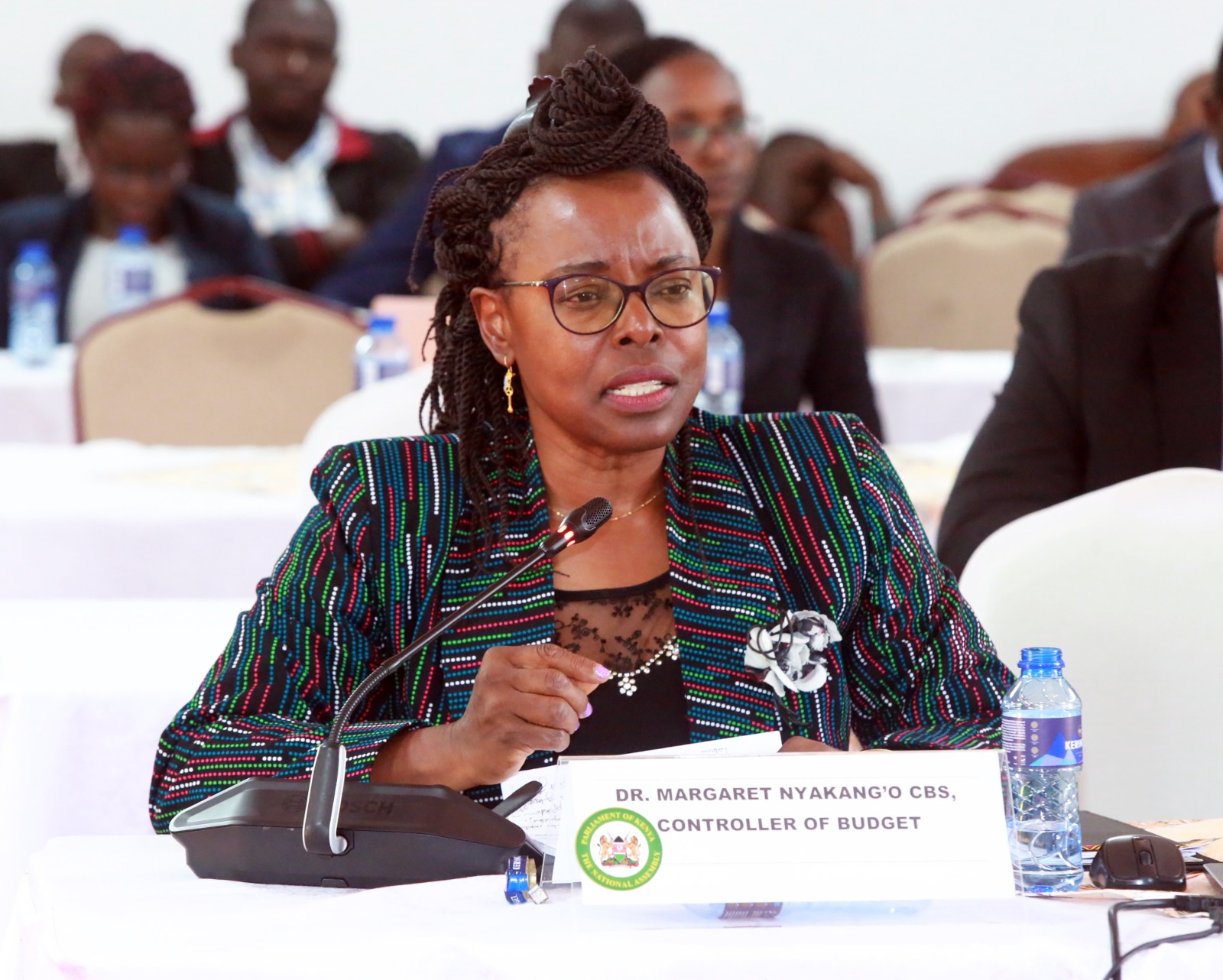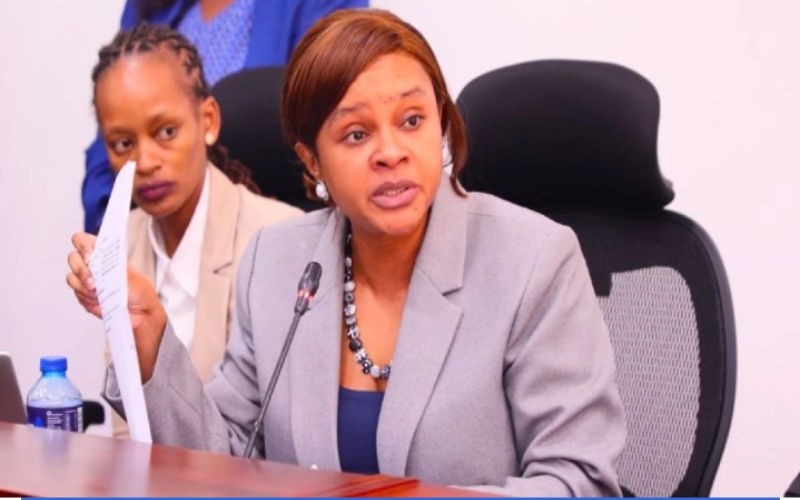Controller of Budget sounds alarm as Kenya's debt hits 67% of GDP

The current public debt currently stands at 67 per cent of GDP, amounting to Sh10.79 trillion as of September 30, 2024, a sharp increase from Sh10.58 trillion just three months earlier.
Kenya's public debt has surpassed the approved 55 per cent of the Gross Domestic Product (GDP) ceiling, with the Controller of Budget, Dr Margaret Nyakang'o, sounding the alarm over the growing debt burden.
The current public debt currently stands at 67 per cent of GDP, amounting to Sh10.79 trillion as of September 30, 2024, a sharp increase from Sh10.58 trillion just three months earlier.
More To Read
- Revenue gaps, budget misalignments hurting service delivery, warns Auditor General
- Three-judge bench to hear petition challenging National Assembly over unauthorised borrowing
- Bursary battle deepens as counties push for full control over education
- Billions locked in stalled county projects across the country - CoB Margaret Nyakang'o
- Treasury warns billions at risk as counties rely on third-party revenue systems
- Counties spend nearly half of budgets on salaries, audit shows
In the National Government Budget Implementation Review Report for the first quarter of the Financial Year 2024-2025, Nyakang'o outlined the escalating fiscal challenges, noting that nearly 70 per cent of all government revenue collected goes toward servicing this debt, with priority given to debt repayments over other expenditures.
"I do not see this going down. The debt will continue rising with time if we do not take necessary measures," she warned.
The debt breakdown reveals that Sh5.19 trillion of the total debt is external, while Sh5.6 trillion is domestic.
The rapid increase in public debt has raised concerns, as the government continues to borrow to finance its activities, with no clear indication of a reduction in the borrowing trend.
"As of September 30, 2024, public debt stock stood at Sh10.79 trillion, which is 67 per cent of the GDP," Nyakang'o stated, highlighting a 2 per cent increase from Sh10.58 trillion as of June 30, 2024.
The report also revealed that Kenya's GDP stood at Sh16 trillion as of June 30, 2024. Despite the substantial size of the economy, the country's debt remains dangerously high, pushing it beyond the 55 per cent GDP threshold set by Parliament in June 2023.
At that time, the National Treasury's proposal to set a new debt ceiling at 55 per cent of GDP was approved. Now, the public debt has exceeded this ceiling by 12 per cent, raising questions about the sustainability of Kenya's borrowing practices.
Decisive actions
Dr Nyakang'o noted that the government must take decisive actions to reduce borrowing, suggesting that measures to combat wastage and corruption are critical to addressing the issue.
"E-Citizen has been effective in reducing wastage. We need to stop buying expensive vehicles for the government," she said, urging greater fiscal responsibility.
This financial warning comes just days after High Court Judge Lawrence Mugambi directed the government to provide detailed information on all debt agreements, sovereign bonds, and a breakdown of how borrowed funds have been spent.
The ruling highlights concerns over Kenya's growing "odious debt," which is debt that cannot be directly linked to specific development projects and is often seen as a burden on the country's future generations.
Despite President William Ruto's earlier promises to reduce the debt burden, Kenya's borrowing has only increased since his administration took office more than two years ago.
With public debt continuing to climb, both the government and the public are facing increasing pressure to find solutions to avoid a deeper fiscal crisis.
Top Stories Today













































